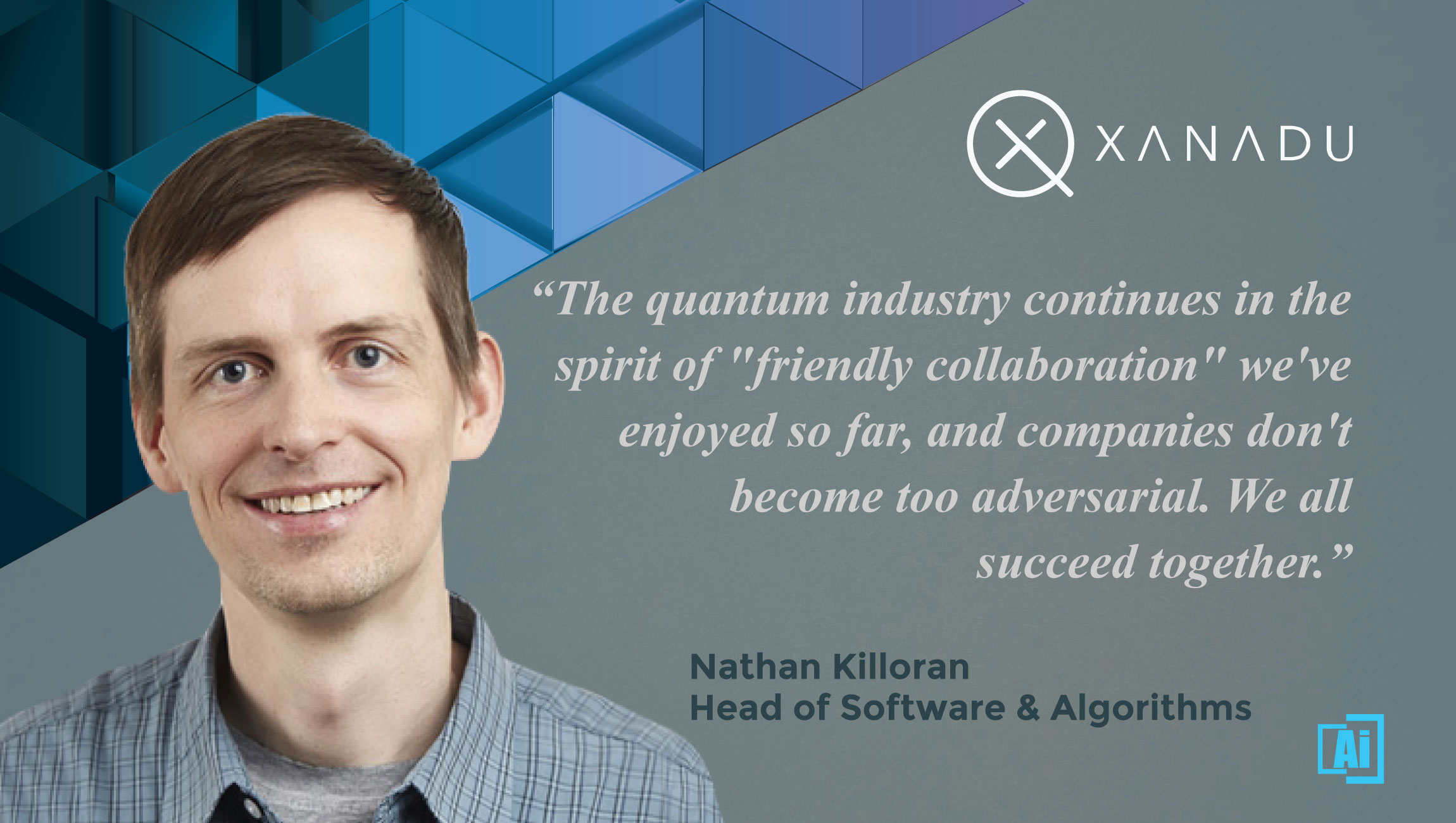AiThority Interview with Nathan Killoran, Head of Software & Algorithms at Xanadu

Hi Nathan, tell us about your journey in technology and how you arrived at Xanadu.
I come from a background where I worked on, at different times during my career, both quantum computing and also deep learning. In the spring of 2017, Xanadu reached out to me and said they wanted to hire people to focus on quantum machine learning. At that stage, Xanadu had just two employees! It was a big risk to join so early. But it was also too good an opportunity to pass up.
What is the most contemporary definition of Quantum Computing? How much have the definitions and the applications evolved in the last 2-3 years at Xanadu / or since you started in the industry?
The perspective has definitely expanded a lot in the last few years. The textbook algorithms like Shor’s or Grover’s are still out there waiting for us, but since they require large numbers of error-corrected qubits, they will not be viable for some years yet. Instead, a lot of attention has turned to how best to use the small and imperfect devices we have available today, leading to perspectives that recognize a much stronger coupling between classical and quantum computing resources, often called “hybrid” quantum-classical computing.
What is Hybrid Quantum Computing and how does it differ from a plain QC platform?
In hybrid approaches, much of a computation is kept classical (since classical computers are very good and heavily optimized for many tasks), and the quantum computer is used as a special accelerator, tasked only with tackling certain tasks it is best suited for. With PennyLane, we try to make the borders between classical and quantum computation as seamless as possible, so a user can, for example, train a machine learning model that leverages both GPUs and QPUs directly from their favourite library like PyTorch, TensorFlow, or Jax.
Read More: AiThority Interview with Prince Kohli, CTO, Automation Anywhere
How did you plan Xanadu’s machine learning software and design PennyLane?
We are very fortunate to have an amazing team, containing many world-experts on quantum machine learning and quantum software. Everything begins with that. Since quantum machine learning is only now laying its foundations as a field, we maintain a very strong connection between our research and our software. Regularly our team members cross the boundaries between being researchers and being programmers. It’s worked out really well, making sure PennyLane is delivering absolutely bleeding-edge features to users as soon as they are viable.
How does it work in an Open Source environment? What kind of ML techniques makes it work efficiently?
We’ve seen the value that open-source machine learning libraries like TensorFlow or PyTorch have brought to users. Capabilities that were previously for experts (such as training neural networks on GPUs) were suddenly freely available to anyone with a laptop. We saw the power this had for creating communities where everyone could take part. This also enables a virtuous cycle: as more and more people began experimenting with these tools, new ideas would emerge and develop more quickly than if everything had remained closed. Quantum computing is also a field that has historically been very expert-driven, but we’re trying to break away from that and focus on community-building with an open-source codebase and freely available educational materials.
Tell us about your partnership with Amazon Braket? Which other Quantum Computing platforms did you identify before starting PennyLane project?
PennyLane is designed as vendor-agnostic software. Our goal is to give users the ability to run the best tools on their favourite quantum hardware (which will probably shift over time as different approaches progress). With the recent integration with Amazon Braket, PennyLane now connects to all major platforms. This is a big win for our users. We’re very excited to be partnering with the Braket team. They’ve got a huge base of users who are interested in quantum and a world-class cloud computing infrastructure, which dovetails nicely with the core machine learning features of PennyLane.
Read More: AiThority Interview With Victor Kushch, CTO and Co-Founder at Fairmarkit
Three forecasts you wish would come true in 2021
– The quantum industry continues in the spirit of “friendly collaboration” we’ve enjoyed so far, and companies don’t become too adversarial. We all succeed together.
– I hope to be able to interact with our users face-to-face at some point next year. It’s great to see a big turnout when we present at virtual conferences, but it will also be nice to see people in person.
– Despite our best efforts, there are still some pain points in running quantum machine learning or hybrid algorithms (in particular, the established access models for cloud quantum computers can be too slow and restrictive). I hope that 2021 will see a big focus on smoothing out these rough edges.
Tag a person from your industry whose answers you would like to see here
There are so many people contributing to growing our ecosystem that I think I will decline to single out just one here. It really is a collective effort across thousands of people, and will continue to be so for some time!
Read More: AiThority Interview With Sanjay Sarathy, VP of Marketing at Cloudinary
Thank you, Nathan! That was fun and we hope to see you back on AiThority.com soon.
Nathan Killoran is a Head of Software & Algorithms at Xanadu

Xanadu Quantum Technologies Inc. is a Canadian quantum technology company, and one of the world’s leading photonic quantum hardware providers.
Founded in 2016, Xanadu’s mission is to build quantum computers that are useful and available to people everywhere. To achieve this mission, the company has taken a full-stack approach and builds hardware, software, and pursues state-of-the-art research with select partners.
Today, enterprises and researchers can begin using Xanadu’s photonic quantum computers through the Xanadu Quantum Cloud (XQC) service and Strawberry Fields application library.
The company is also advancing the field of quantum machine learning (QML) through the development of PennyLane, an open-source project that has become a leading software library among quantum researchers and developers.
